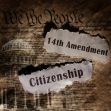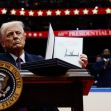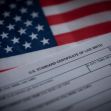A federal appeals court delivered a significant setback to President Donald Trump's controversial executive order aimed at ending birthright citizenship, ruling on Wednesday that the policy violates the Constitution. The 2-1 decision from the 9th U.S. Circuit Court of Appeals in San Francisco upheld a nationwide injunction, effectively blocking Trump's order from taking effect.
The ruling follows the Supreme Court's recent directive to lower courts to reassess the necessity and scope of nationwide injunctions that halted Trump's executive order, which was initially enacted on his first day in office during his second term. The appeals court concluded that the broad injunction issued by a federal judge in Seattle was justified, rejecting claims that it represented judicial overreach.
Writing for the majority, Judge Ronald Gould stated, "The district court below concluded that a universal preliminary injunction is necessary to provide the states with complete relief. We conclude that the district court did not abuse its discretion in issuing a universal injunction in order to give the states complete relief."
Judge Gould, appointed by former President Bill Clinton, emphasized that limiting the injunction geographically would impose undue burdens on the states, requiring costly changes to eligibility verification systems for various social programs. Gould further affirmed the lower court's constitutional interpretation, stating, "The district court correctly concluded that the Executive Order's proposed interpretation, denying citizenship to many persons born in the United States, is unconstitutional. We fully agree."
The court's majority decision referenced the 1898 landmark Supreme Court ruling, United States v. Wong Kim Ark, along with longstanding practices by the Executive Branch, to underscore the unconstitutionality of Trump’s executive order.
However, not all judges agreed. Judge Patrick Bumatay, a Trump appointee, dissented in part, arguing that the states challenging the order lacked legal standing. He stated it was "premature to address the merits of the citizenship question or the scope of the injunction."
The Trump administration has the option to appeal the decision to the full 9th Circuit Court or take the case directly to the Supreme Court. The policy is currently blocked nationwide due to an earlier class-action lawsuit by the American Civil Liberties Union, which successfully obtained an injunction from a federal judge in New Hampshire.
This case highlights ongoing legal disputes over executive power, immigration policy, and interpretations of the Constitution's Citizenship Clause, which guarantees citizenship to all individuals born on U.S. soil.






